Binyavanga Wainana’s memoir ‘One Day I Shall Write About This Place’ was published by Kwani Trust in 2012. Binyavanga is the founder of Kwani, a local literary community which mentors and publishes young African writers. Before this memoir, Binyavanga published several books and essays, the most notable being the widely-acclaimed ‘How to write about Africa’.
I pinched the memoir from my pal’s home library. When I asked him what he thought of the book, he twisted his face, bobbed his head and said ‘So so’.
I started to read this ‘so so’ book as soon as I got the chance to. Sunday night, before we went to the polls, I curled up in my reading chair and started to read. I continued to read as we queued to cast our vote the following Monday, on March 4. I read it all week as we listened to Charles Kanjama (God bless this dear) and Dr. Oloo analyze every statistic, every utterance and every body movement made during the election period. I read as we watched the IEBC mechanisms systematically break down. I read as the two horses in the race maintained the steady gap between them.
I liked the rustic images Binyavanga created in the first of the part book – an African child growing up in post-colonial Kenya. Simple story telling that builds up on layer upon layer of the world as seen through the eyes of a boy growing up in a close-knit family. His writing was easy and the imagery arresting; mild humor from his warped view of the world peppered the story. What he was unable to voice, he expressed in words. I caught myself smiling often.
Despite the simplicity of the story telling, the book called for plenty of patience because it was difficult to get the read into a steady motion. One short sentence followed another after another. There was a stammer in the prose because of these short sentences. I was in constant whiplash, like riding with a driver who kept engaging his manual transmission moti in the wrong gear. Besides this, there were instances where Binyavanga rambled on with his juvenile musings causing a digression.
The urge to put the book away came to me on several such occasions. It did. But I had an inkling there was something great simmering in the background.
And there was.
I found it in the chapter before he left to pursue his undergraduate degree in Transkei, South Africa. Binyavanga was in a bar with a pal, when he met this woman whom he did not immediately recognize as his childhood house-help because she was dolled up in a wig and wore heavy make- up. Add to that, she was drunk. When he finally realized this woman was not a stranger but Wambui, the hauzi, he says this of her:
‘So easy to believe in the person she wanted to be, so impossible for me to accept that person has come to be….I am so angry at her fake attempt to be what she is not. That she fooled me. I want to put a hoe in her hands and tell her to go home to Subukia and grow potatoes.’
It was then I believed there grandeur in this book. Right then, it stopped being a doodle and started to become a mural.
Binyavanga goes to SA. The phase in Transkei is yet again spent with his quizzing imagination. The imagery remains intense, and the writing is more matured than the first part of the book. He used longer sentences. He also used creative devices to illuminate everything he encountered (though to a nauseating degree). The read became engaging and empathetic: I now held an entirely different book in my hands.
I saw him struggle through an identity crisis; holding on to anchors which were not weighty enough to keep him grounded. I pictured him as a riff raff, stone high and seeking solace in fleeting unfulfilling company. Too many characters are introduced in his time in Transkei; these characters added an appreciated depth to the story but most of them fizzled out thereafter.
Because of all the lost ambition and youthful indiscipline, Binyavanga returns to Kenya having not completed his undergraduate degree. The young man is lost. Binyavanga makes a visit to Uganda to meet his extended family and learn of his origins. He finds some bearing from this visit. The book’s tempo increases with each turn of the page; I was enthralled.
Refreshed and focused (literally and figuratively speaking), Binyavanga returns to SA to complete his degree. He is not able to achieve this because he realizes now he is not passionate about this degree in accounting (who ever is?). He moves to Cape Town, takes up some odd jobs and starts his writing career. Binyavanga is forced to return home following the death of his mom, who succumbs to diabetes.
After the funeral, he decides to stay in Nairobi to establish himself as a writer. In this part of the book, we journey with Binyavanga through the struggles of getting his writing career off the ground, the founding of his brainchild Kwani? and his joy of winning the Caine Prize for African writing. He says this about his craft:
It often feels like an unbearable privilege – to write. I make a living from simply taking all those wonderful and horrible patterns in my past and making them new and strong….Sometimes I want to stop writing because I can’t bear the idea that it may one day go away. Sometimes I feel I would rather stop, before it owns me completely. But I can’t stop.
Such powerful words; I re-read that paragraph often. Also, he reflects on his identity as a Kikuyu man in political Kenya.
The momentum of the book starts to slow down again and then without warning, the book takes another dip: Binyavanga delves into paragraph after paragraph of disparate ideas. He tosses me around without apology. Again, the urge to put the book away finds me. I struggle to keep up with Binyavanga in these crucial final phases of the memoir but I am left behind each time I catch up.
Towards the end of the book, Binyavanga reveals he is diabetic; a revelation that is only four words long. I wanted him to say more about his condition, about his fears and about the impact it had on his routines and habits. But, he did not. This would have been an excellent way for his readers to connect with him emotionally.
Then, there is an inclusion of the 2007/2008 post-poll chaos that did little to advance the storyline of the book.
The final chapter of the book is a reminder of where he sought his solace his entire life: the written word. He muses:
There are television and radio people. There are people in books. People in books do not have an actual voice for your ears. You cannot see them. You, the reader, work with a good author to make the move around your head, toss their hair, hate and love, and need things urgently.
The book ends on an affectionate note here.
**
Binyavanga did not aimlessly create the voices which narrated the autobiography. From childhood, where he stammered. To early adulthood where he was bolder, and sought to find his identity and footing; where he matured as a writer. To later adulthood where toned the voice down; where he appreciated he was in a position to influence with the foothold he had established in the literary circles both locally and abroad.
I believe the voice he creates in each part of the book is a direct reflection of the person he was at the time.
I am left to question one thing though: what is Binyavanga left with after the book? He does not keep in touch with any of the people he met in South Africa; I dare not call them his friends. There is no mention of a special woman, or love, or wild oats in the book. His siblings have gone on to become mothers and fathers, and his parents are no longer with us. After all is said and done, what keeps Binyavanga warm at night?
I sought commentary from Binyavanga but by the time this was going to press (I have always wanted to say that), I had not received a response.
**
I disagree with my pal when he says it is ‘So so’: this book is a masterpiece in its own right.
1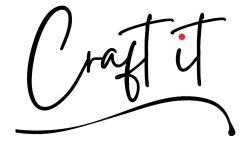

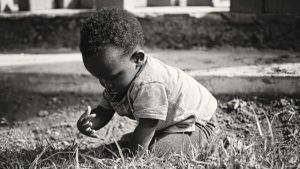

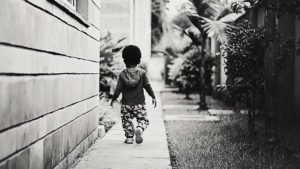
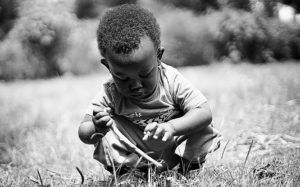

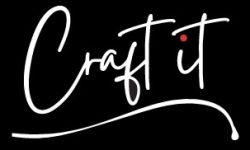

I like what I am seeing in you Fc Bett. Your writing seems to mature daily getting a new sense of enthusiasm and spontainety. I really envy you.
Thanks JNganga. It means plenty that coming from you.
Make sure to keep writing, and to keep updating your blog. Like I mentioned once before, we are all in this journey.
Cheers.
Sorry once again.
http://humanbeingforequality.wordpress.com
This is an amazing piece.
I loved it.
Please visit my blog as well.
htttp://umanbeingforequality.wordpress.com
Cheers.
I am on it.